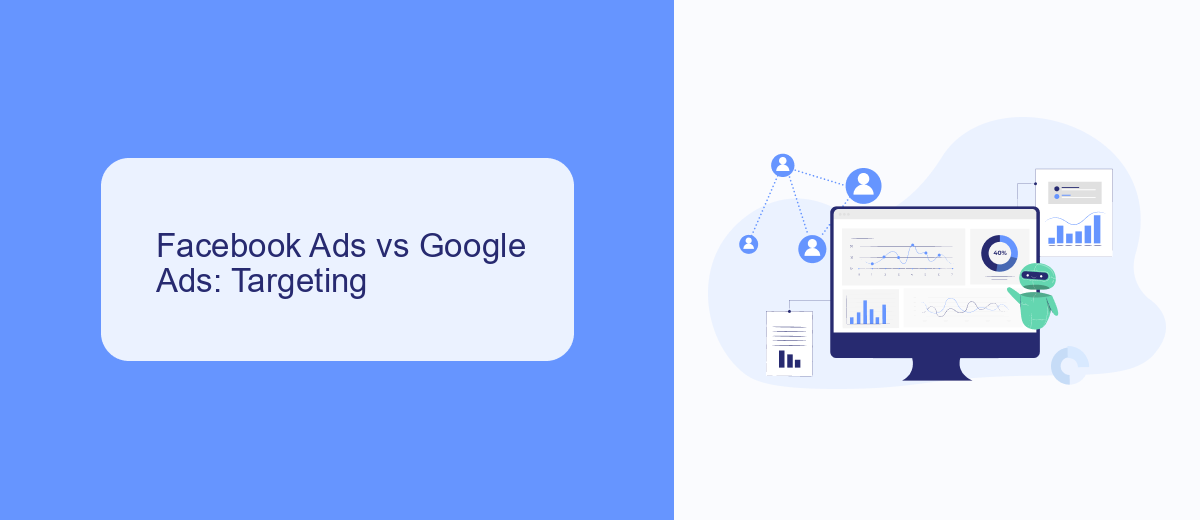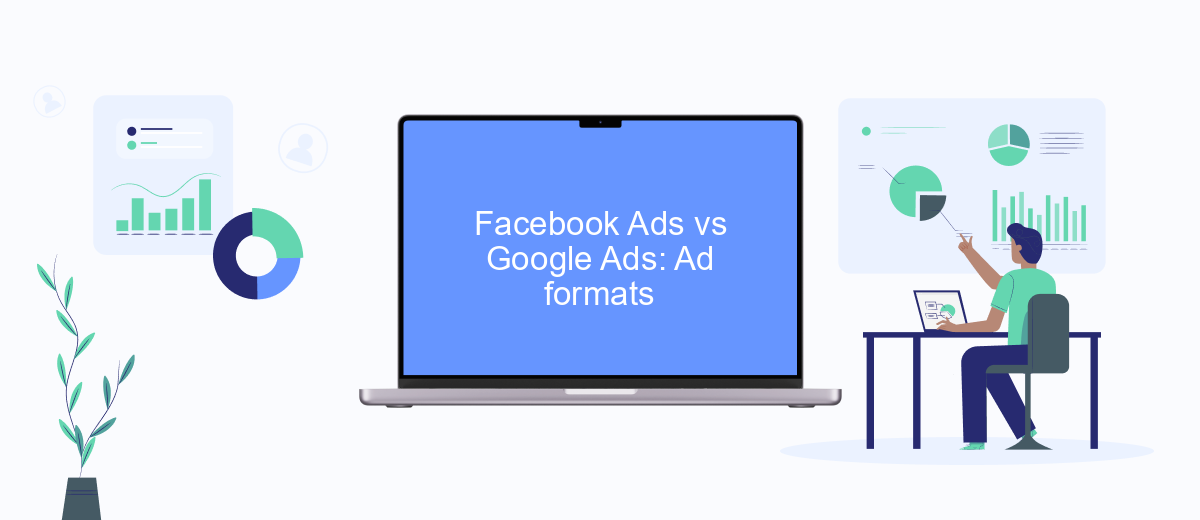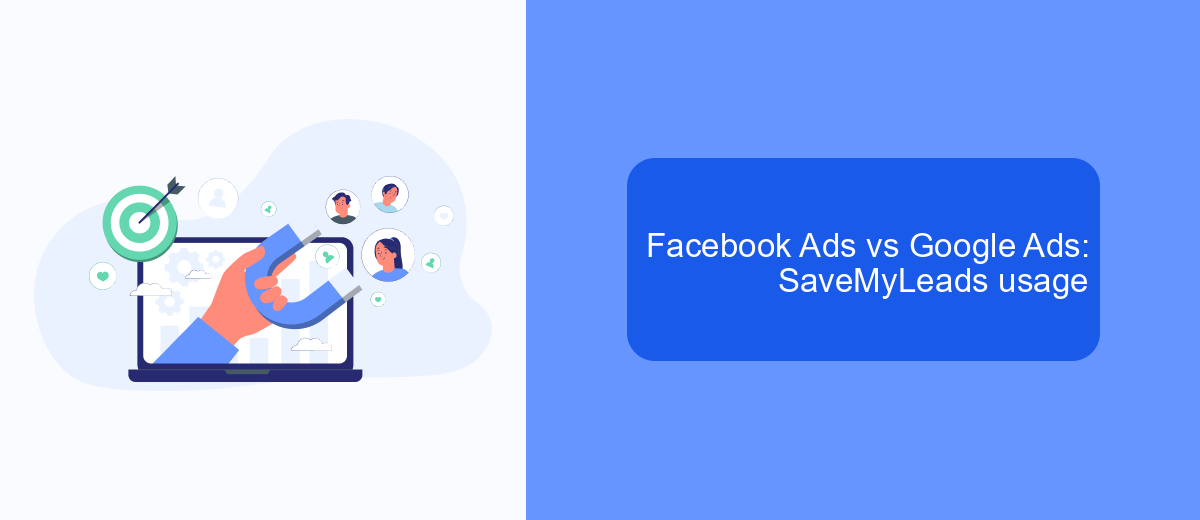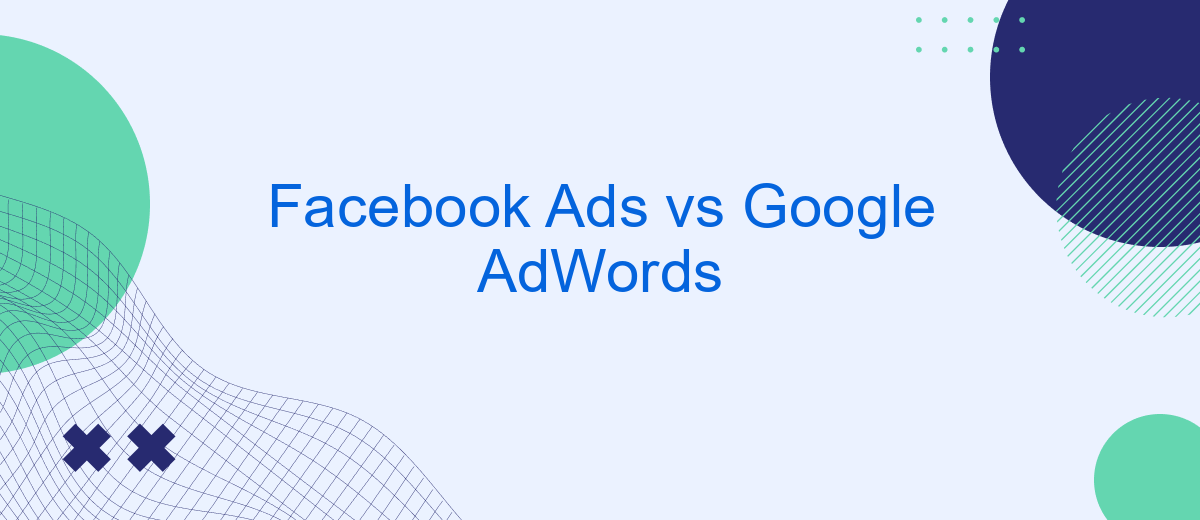In the ever-evolving landscape of digital marketing, businesses are often faced with the choice between Facebook Ads and Google AdWords. Both platforms offer unique advantages and cater to different marketing goals. Facebook Ads excel in audience targeting and engagement, leveraging social interactions, while Google AdWords focuses on capturing intent-driven searches. Understanding their differences is crucial for crafting effective advertising strategies that maximize reach and ROI.
Facebook Ads vs Google Ads: Overview
When businesses consider digital advertising, two of the most prominent platforms that come to mind are Facebook Ads and Google Ads. Both platforms offer unique advantages and cater to different marketing needs, making it essential for marketers to understand their differences. Facebook Ads is renowned for its advanced targeting capabilities, allowing advertisers to reach audiences based on demographics, interests, and behaviors. On the other hand, Google Ads excels in capturing intent-driven search traffic, making it ideal for businesses looking to target users actively searching for their products or services.
- Targeting: Facebook Ads focuses on audience interests and behaviors, while Google Ads targets based on search intent.
- Ad Formats: Facebook offers visually engaging formats like carousel and video ads, whereas Google provides text-based search ads and display network options.
- Cost: Both platforms use a bidding system, but costs can vary based on industry and competition.
Ultimately, choosing between Facebook Ads and Google Ads depends on your business goals and target audience. Facebook is ideal for brand awareness and engagement, leveraging its social nature to build connections. Conversely, Google Ads is suited for direct response campaigns, capturing high-intent users ready to convert. A strategic combination of both can maximize reach and effectiveness, ensuring comprehensive coverage across the digital landscape.
Facebook Ads vs Google Ads: Targeting

When it comes to targeting, Facebook Ads and Google Ads offer distinct approaches to reaching potential customers. Facebook Ads leverage the vast amount of user data available on the platform, allowing advertisers to create highly specific audience segments based on demographics, interests, and behaviors. This enables businesses to target users who are more likely to be interested in their products or services. Additionally, Facebook's lookalike audience feature allows advertisers to reach new users who resemble their existing customer base, further enhancing targeting precision.
On the other hand, Google Ads primarily focuses on intent-based targeting through keywords. Advertisers can target users actively searching for specific terms related to their products or services, ensuring that ads are shown to individuals with a clear interest. Google Ads also offers demographic targeting, but it's not as detailed as Facebook's. For businesses looking to streamline their advertising efforts, integrating platforms like SaveMyLeads can be beneficial. SaveMyLeads automates data transfer between Facebook Ads and CRM systems, ensuring that leads are efficiently captured and managed, ultimately enhancing targeting strategies on both platforms.
Facebook Ads vs Google Ads: Ad formats

When it comes to advertising online, both Facebook Ads and Google Ads offer a variety of ad formats to cater to different marketing goals and audience preferences. Each platform provides unique opportunities for businesses to engage with their target audience, but the choice of ad format can significantly impact the effectiveness of a campaign.
- Facebook Ads Formats:
- Image Ads: Simple yet effective, these ads use eye-catching images to grab attention.
- Video Ads: Engaging videos that can appear in the news feed or stories.
- Carousel Ads: Allow showcasing multiple images or videos in a single ad.
- Collection Ads: Feature a collection of items that open into a full-screen experience.
- Google Ads Formats:
- Search Ads: Text-based ads that appear on Google search results.
- Display Ads: Visually engaging ads that appear across the Google Display Network.
- Shopping Ads: Showcase products directly in search results with images and prices.
- Video Ads: Primarily hosted on YouTube, these ads can be skippable or non-skippable.
Choosing between Facebook Ads and Google Ads depends largely on your business objectives and target audience. Facebook's strength lies in its visual storytelling and engagement, while Google excels in capturing intent-driven searches. Understanding the nuances of each platform's ad formats can help craft a more effective advertising strategy.
Facebook Ads vs Google Ads: SaveMyLeads usage

When businesses consider using Facebook Ads or Google Ads, they often seek tools to streamline their advertising efforts. SaveMyLeads is a powerful solution that can enhance the effectiveness of both platforms. It automates lead data transfers, ensuring seamless integration with various CRM systems and other applications. This not only saves time but also reduces the risk of human error in data management.
SaveMyLeads offers a user-friendly interface that allows marketers to set up automated workflows without any coding knowledge. By bridging the gap between Facebook Ads and Google Ads, it empowers businesses to maximize their advertising ROI. The tool is designed to cater to businesses of all sizes, making it a versatile option for startups and established companies alike.
- Automates lead data transfers from Facebook and Google Ads.
- Integrates seamlessly with CRM systems and other applications.
- User-friendly interface with no coding required.
- Enhances advertising ROI by streamlining data management.
In conclusion, SaveMyLeads is an essential tool for businesses looking to optimize their advertising strategies on Facebook and Google. By automating lead data processes, it allows marketers to focus on crafting compelling ad campaigns and nurturing customer relationships, ultimately driving growth and success.
- Automate the work with leads from the Facebook advertising account
- Empower with integrations and instant transfer of leads
- Don't spend money on developers or integrators
- Save time by automating routine tasks
Facebook Ads vs Google Ads: Which is better?
When comparing Facebook Ads and Google Ads, it's essential to consider your business goals and target audience. Facebook Ads excel in targeting users based on demographics, interests, and behaviors, making them ideal for businesses aiming to build brand awareness and engage with specific audience segments. With visually appealing ad formats like carousel and video ads, Facebook Ads can capture users' attention in a social media environment. On the other hand, Google Ads, with its search intent-driven approach, is more effective for capturing potential customers actively searching for products or services. This makes Google Ads a powerful tool for driving conversions and achieving direct sales.
Ultimately, the choice between Facebook Ads and Google Ads depends on your marketing objectives. If you're looking for a platform that offers robust targeting options and creative ad formats, Facebook Ads might be the better choice. However, if your goal is to reach users with high purchase intent, Google Ads could be more suitable. For businesses seeking to streamline their ad campaigns and integrate leads seamlessly, services like SaveMyLeads can automate the process, ensuring you make the most of both platforms by efficiently managing and nurturing your leads. Consider leveraging the strengths of both platforms to create a comprehensive advertising strategy that maximizes your reach and impact.
FAQ
What are the main differences between Facebook Ads and Google AdWords?
Which platform is more cost-effective for small businesses, Facebook Ads or Google AdWords?
How can I track the performance of my campaigns on Facebook Ads and Google AdWords?
Can I use both Facebook Ads and Google AdWords simultaneously for my marketing strategy?
How do I decide which platform to prioritize for my advertising campaigns?
You probably know that the speed of leads processing directly affects the conversion and customer loyalty. Do you want to receive real-time information about new orders from Facebook and Instagram in order to respond to them as quickly as possible? Use the SaveMyLeads online connector. Link your Facebook advertising account to the messenger so that employees receive notifications about new leads. Create an integration with the SMS service so that a welcome message is sent to each new customer. Adding leads to a CRM system, contacts to mailing lists, tasks to project management programs – all this and much more can be automated using SaveMyLeads. Set up integrations, get rid of routine operations and focus on the really important tasks.

